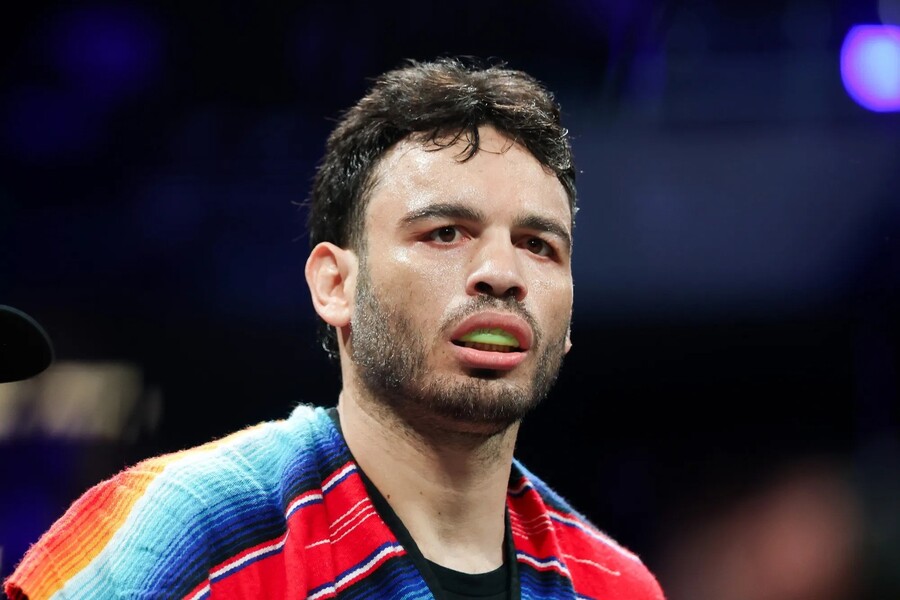Former WBC middleweight champion Julio César Chávez Jr., 39, was deported from the United States to Mexico and booked into a prison in the northern state of Sonora, where authorities say he faces allegations tied to organized crime, arms trafficking, and drug offenses. Mexico’s president, Claudia Sheinbaum, acknowledged his return and said the boxer would face proceedings at home.
What happened
U.S. immigration officers arrested Chávez in Los Angeles in early July after determining he had overstayed a tourist visa and made false statements on a permanent residency (green card) application. His arrest came days after his June 28 high-profile bout with Jake Paul in Anaheim. Following immigration proceedings, he was handed over to Mexican authorities and transported to a facility near Hermosillo, Sonora.
Mexico’s attorney general, Alejandro Gertz Manero, has said the investigation into Chávez dates back to 2019. A Mexican arrest warrant issued previously alleges organized crime links, including ties to the Sinaloa Cartel, and arms and drug-trafficking offenses. Officials confirmed he is now in custody in Sonora.
Why it matters
The Sinaloa Cartel was designated a Foreign Terrorist Organization (FTO) by the United States in February 2025, a move that expanded the legal and financial tools Washington can deploy against affiliates and facilitators. If Mexican prosecutors tie any of Chávez’s alleged activity to an FTO, it could influence bilateral cooperation and evidence-sharing as the case proceeds.
The U.S. immigration case
According to Department of Homeland Security statements cited in contemporaneous reports, Chávez entered the U.S. on a tourist visa in August 2023 that expired in February 2024, and he later applied for permanent residency on April 2, 2024. U.S. officials alleged multiple false statements in that filing and identified him as an “egregious public safety threat” before moving to detain him.
Mexico’s case
Mexican authorities say Chávez is wanted on organized crime-related allegations, including arms and drug trafficking, and suspected links to the Sinaloa Cartel. He was delivered to a prison outside Hermosillo after deportation, officials told reporters. The timeline suggests Mexico sought custody after his U.S. arrest; Sheinbaum later told a news conference she understood he had been deported and would face Mexican justice.
Statements and defense
Chávez’s attorney, Michael Goldstein, has called the allegations “outrageous,” urging that due process run its course. Family members previously expressed support and confidence in the legal process in both countries. Mexican officials have not detailed a public court schedule, and prosecutors have not filed an indictment in open court that would lay out specific counts.
Career and prior legal issues
Chávez Jr. won the WBC middleweight title in 2011 and made three defenses before losing the belt. He later fought elite names such as Canelo Álvarez and Sergio Martínez. Outside the ring, he has contended with suspensions, a 2012 DUI conviction in Los Angeles, and an unresolved 2024 weapons case in California, where police alleged he possessed two AR-style “ghost” rifles; he was released on bond with a condition to enter drug treatment
Reader guide: Key questions answered
- What are the allegations? Mexican authorities allege organized crime conduct, including arms and drug trafficking, and ties to the Sinaloa Cartel. No conviction has been announced; Chávez is presumed innocent while proceedings play out.
- Why was he deported? U.S. officials said he overstayed a tourist visa and made false statements on a green-card application; after immigration processing, he was transferred to Mexico.
- What’s the significance of the cartel designation? The U.S. named the Sinaloa Cartel an FTO in February 2025, unlocking broader sanctions and legal tools; that backdrop may shape cross-border cooperation in this case.
- What’s next? Initial hearings in Sonora would determine pretrial measures and the scope of charges. His separate 2024 California gun case remains on the books, but the status could hinge on his custody in Mexico.
Timeline
- Apr. 2, 2024: Applies for permanent residency; U.S. officials later allege false statements.
- June 28, 2025: Fights Jake Paul in Anaheim, California.
- July 2025: Arrested by U.S. immigration officers in Los Angeles; Mexico signals it wants him returned.
The bottom line
Chávez Jr.’s deportation closes the U.S. immigration chapter but opens a more serious legal fight in Mexico, where prosecutors have pursued him since 2019 for alleged organized-crime activity. The case unfolds as Washington intensifies pressure on major cartels—context that could influence evidence sharing and prosecutorial strategy on both sides of the border.

